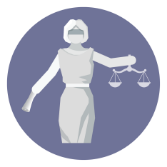


Act "A decree proclaiming the law in an area, passed by a competent legislative body, that may proclaim new law, alter or modify existing law, or repeal previously existing law."
Bill "In legislation, a document submitted to Parliament or a provincial legislature for its consideration and/or enactment. If approved it becomes law in the form of a statute."
Case "An action, cause, suit or controversy at law or in equity; a trial; the evidence and argument on behalf of the parties."
Case law/Common law "The system of jurisprudence, which originated in England and was later applied in Canada, that is based on judicial precedent rather than legislative enactments ... Common law depends for its authority upon the recognition given by the courts to principles, customs, and rules of conduct previously existing among the people. It is now recorded in the law reports that embody the decisions of the judges, together with the reasons they assigned for their decisions."
Headnote "A summary of the relevant facts of a case and concise synopsis of the points of law decided therein. Placed at the beginning of a case report, the headnote is not an official portion of the reported judgement."
Jurisprudence "A term denoting the collective course of judicial decisions."
Legislation "Acts or statutes passed by a governing authority. Statutes and instruments of Parliament are referred to as federal legislation. Likewise, enactments of the provincial legislatures are referred to as provincial legislation."
Statute "An act of the legislature; in Canada an act of a provincial legislature of the Federal Parliament adopted pursuant to constitutional authority. Statues constitute a primary source of law and are enacted, for example, to prescribe conduct, define crimes, create inferior government bodies, appropriate public monies, and in general promote the public good and welfare."
Regulation "A form of subordinate legislation" that gives the power to enforce statutes to a specific person or agency.
Summary See Headnote
Yogis, J.A. & Cotter, C. (2013). Canadian law dictionary (7th ed.). Hauppauge, NY: Barron's Educational Series.
This site is maintained by the librarians of Okanagan College Library.
If you wish to comment on an individual page, please contact that page's author.
If you have a question or comment about Okanagan College Library's LibGuides site as a whole, please contact the site administrator.